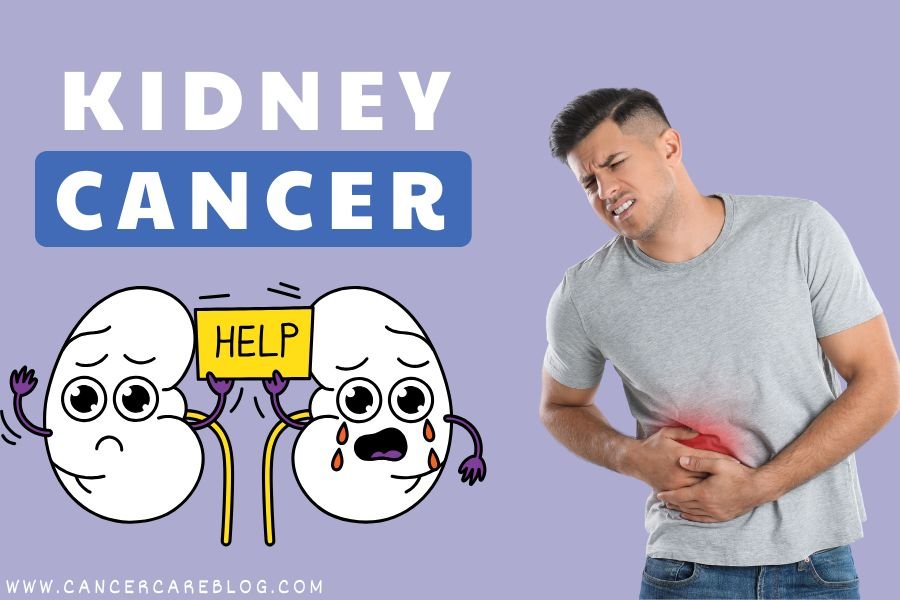No one ever expects to hear the words “you have kidney cancer.” It’s not just a diagnosis—it’s a wave of fear, questions, and uncertainty. If you’re reading this, you’re probably looking for answers right now. What does it mean? What happens next? Whether you’re newly diagnosed or trying to understand what a loved one is facing, this article will walk you through every part—symptoms of kidney cancer, treatment options, survival rates, and what hope really looks like.
What Is Kidney Cancer?
Let’s talk about the basics. What is kidney cancer? It happens when cells in your kidneys grow out of control. These organs clean your blood and help keep your body in balance. When cancer forms, it often starts in the small tubes inside the kidney.
There are different types, but the most common one is renal cell carcinoma. This makes up most cases in adults.
What Causes Kidney Cancer?
You might be asking, what causes kidney cancer? In many cases, it’s hard to pinpoint just one reason. But certain things increase the risk:
- Smoking
- Obesity
- High blood pressure
- Family history
- Workplace chemical exposure
Even if you live a healthy life, cancer can still happen. That’s the hard truth.
Early Signs of Kidney Cancer
The early signs of kidney cancer can be easy to miss. Some people don’t feel anything unusual for a long time. But there are clues to look out for:
- Blood in your urine (even if it’s just once)
- Pain on one side of the lower back
- A lump or swelling in your side or abdomen
If you notice these signs of kidney cancer, see a doctor. You might feel scared, but catching it early can save your life.
Kidney Cancer Symptoms That Often Get Ignored
You may wonder, what are kidney cancer symptoms like? They aren’t always dramatic. Many people feel tired or lose weight without trying. Some develop a fever with no clear cause.
Other kidney cancer symptoms include:
- Swollen legs or ankles
- Pain in bones (if it has spread)
- Shortness of breath
Sometimes the symptoms of kidney cancer don’t show up until the cancer is more advanced. That’s why early testing is so important.
How Kidney Cancer Is Diagnosed
Doctors use different tools to make a kidney cancer diagnosis:
- Urine tests to find blood
- Blood tests to check kidney function
- Imaging like CT scans or MRIs
- Biopsy in some cases
Once the kidney cancer diagnosis is made, your doctor will determine the stage. That tells you how far the cancer has spread.
Kidney Cancer Treatment Options
If you’re facing kidney cancer treatment, know that there are many options. Treatment depends on the stage, your age, and your overall health.
Common kidney cancer treatment options include:
- Surgery (to remove part or all of the kidney)
- Targeted therapy (drugs that attack cancer cells)
- Immunotherapy (boosts your immune system)
Your care team might suggest one or a combination. Always ask questions and weigh the side effects.
Is Kidney Cancer Curable?
Many people ask, is kidney cancer curable? The answer depends on the stage.
If found early, before it spreads, kidney cancer can often be cured with surgery alone. Even in advanced cases, treatment can control the disease.
So yes, kidney cancer is curable in many situations—especially stages 1 and 2.
What Stage 4 Kidney Cancer Really Means
Hearing stage 4 kidney cancer can feel devastating. At this stage, cancer has moved to other organs. But don’t lose hope.
New treatments help people live longer and better lives. Stage 4 kidney cancer is harder to treat, but it’s not always a death sentence.
If you or someone you love has stage 4 kidney cancer, talk to a specialist. Explore clinical trials. Support groups can help too.
Kidney Cancer Survival Rate
You probably want to know the numbers. The kidney cancer survival rate depends on the stage:
- Local (hasn’t spread): around 93%
- Regional (nearby tissue): about 71%
- Distant (spread far): roughly 14%
These are averages. Some beat the odds. Focus on your care plan. Ask about every option. The kidney cancer survival rate is just one part of the story.
Final Words of Support
Dealing with kidney cancer is overwhelming. Whether you’re fighting it yourself or helping someone else, you’re not alone.
We’ve talked about what is kidney cancer, what causes kidney cancer, and how it shows up in the body. You’ve learned about kidney cancer symptoms, signs of kidney cancer, and what the journey looks like—including stage 4 kidney cancer.
Keep asking questions. Take things one day at a time. And most of all—hold on to hope.
Sources:



